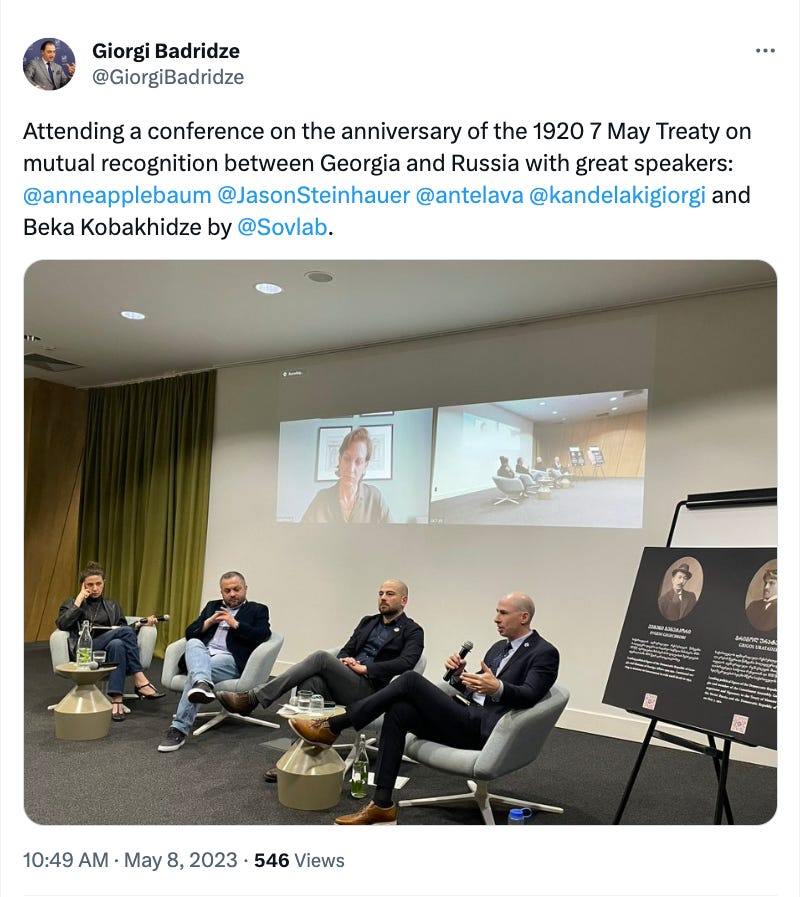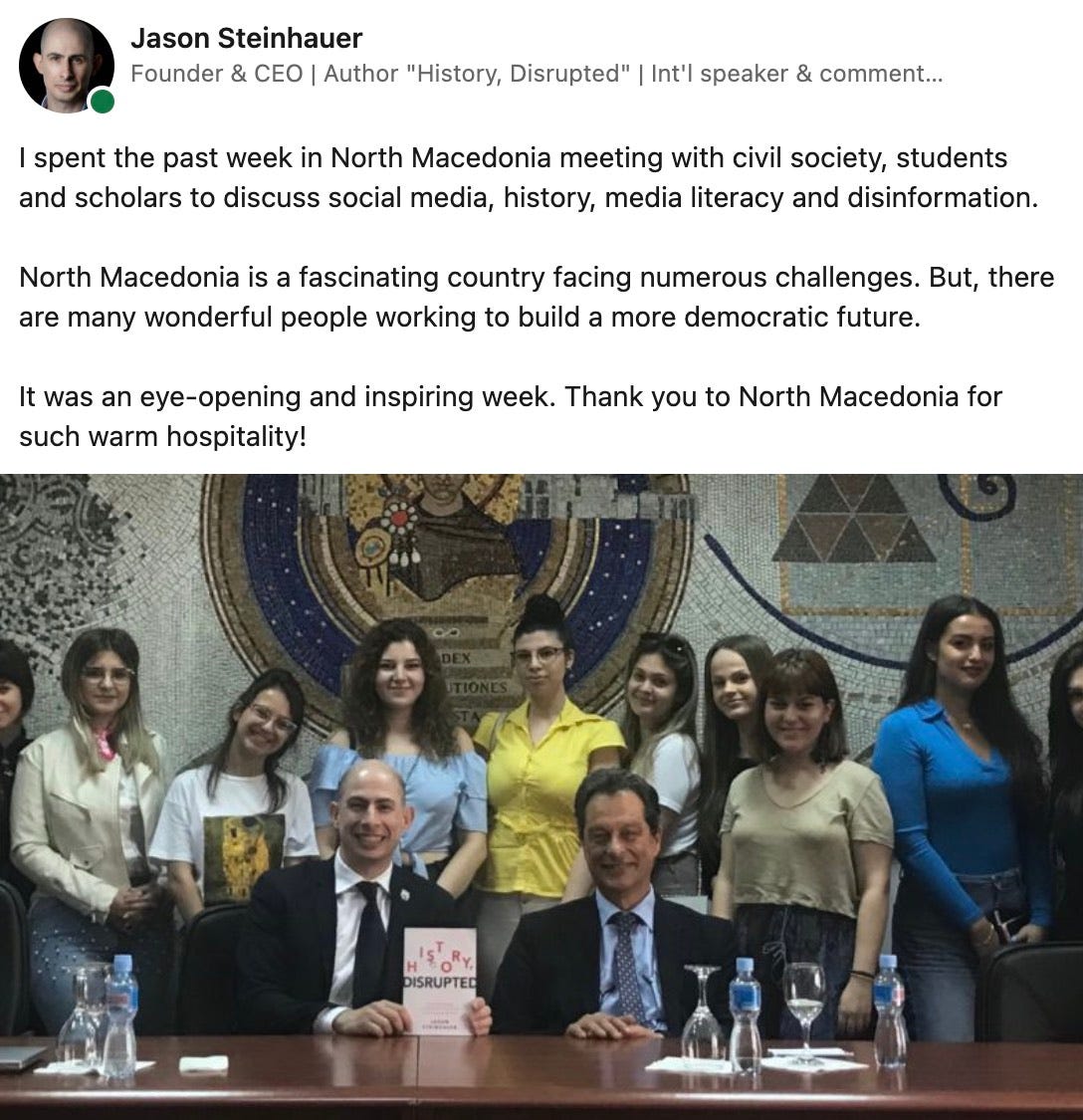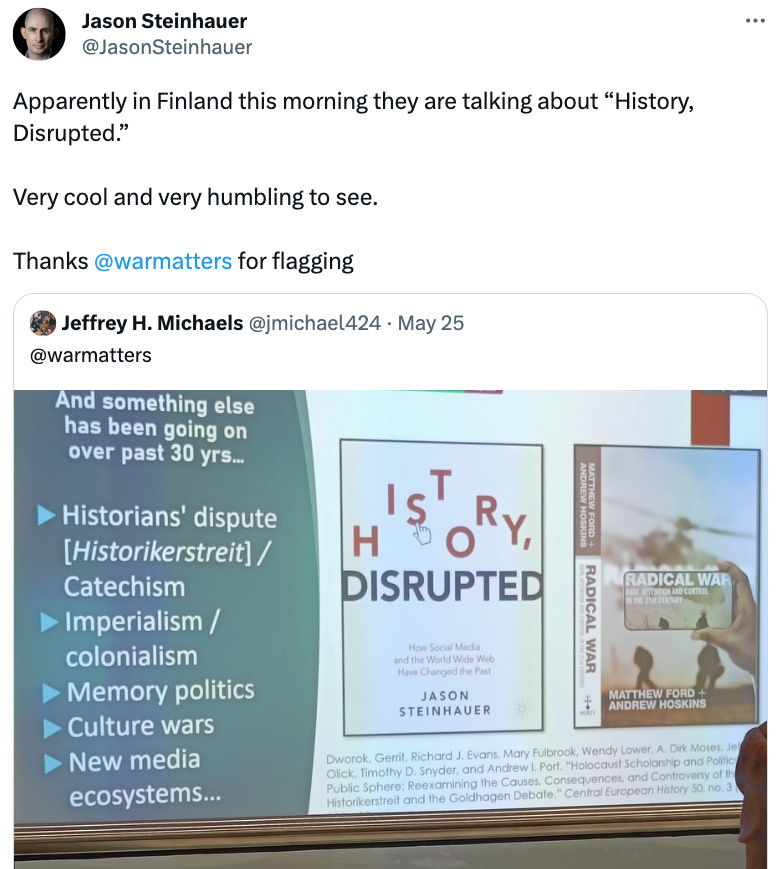Bringing history into policy
A new course aims to bring more historical perspective into policymaking
This week, I announced some personal news: I’ve joined the Maxwell School for Citizenship and Public Affairs in Washington, D.C., as an adjunct professor teaching a course on bringing history into policymaking. The course, which I designed, is called “A Usable Past: Policymakers and the Lessons of History.”
I’ve been interested in the intersection between history and policy for many years. When I worked at the Library of Congress, one of our principal missions was to bring our scholars-in-residence into conversation with Members of Congress and their staffs.
As the founding director of the Lepage Center for History and the Public Interest, I was part of an international cohort that gathered in London in 2018 that sought to establish a formal partnership between history and policy organizations around the world. (The pandemic, unfortunately, put an end to the initiative).
As a current Global Fellow in The Wilson Center’s History and Policy Program, the intersection between history and policy is top of mind. And my hope is that part of what my book History, Disrupted has achieved has been to make evident why history and historians need to be part of tech policy conversations.
In academia, government and think tanks, I’ve seen the successes and shortcomings of how the worlds of history and policy interact and communicate with one another. I’m thrilled to be able to bring that experience into a course for Executive-level Masters students at the Maxwell School in D.C. My goal is to help the next generation of policymakers incorporate historical scholarship and historical perspective into their decision-making. Such perspectives are sorely needed.
The Maxwell School is consistently rated as the #1 school for public affairs in the United States. It has extremely talented faculty and students, and I’m humbled to be among them. The course is being taught at the Center for Strategic International Studies (CSIS), right in the heart of D.C., a few blocks from The White House—so if you’re in the D.C. area this summer, please say hi!
This appointment comes at an apt time, on the heels of my speaking tour across Europe with the U.S. Department of State. I was on the road for 32 days and participated in 27 events. I traveled more than 17,000 miles across 6 countries in 5 weeks, taking 16 flights and walking more than 208,000 steps.
(If you’re thinking that sounds exhausting—it was! I’m still recovering.)
I’ll have more to say about my trip soon, including (I hope) an article in a forthcoming publication that deals with international relations. For now, I will simply say that the need for history to inform policy was striking and plainly evident. In each country I traveled, interpretations of history were at the heart of political and societal debates. The need for informed historical perspective was crucial, and yet, oddly, often absent. Towards the end of my trip, one U.S. Foreign Service Officer I met said aloud, “It’s almost as if every embassy needs a historian!” I couldn’t agree more.
Many of you were following along on social media as I posted about my trip. For that I thank you, as it was a great boost to receive your supportive comments and emojis while being half-way around the world.
For those who did not, here are a few highlights:
In Brussels, Belgium, after meetings with the U.S. Embassy, European External Action Service, European Parliament and the Permanent Representation of Lithuania to the European Union, I was interviewed by Belgium’s largest Dutch publication, De Standaard, and its largest French publication, Le Soir.
In Tbilisi, Georgia, I met with the local history organization Sovlab, delivered a talk at the famed Writers’ House Museum, and participated in a conference on historical memory:
In Munich, Germany, I spent two days at the think tank of the Technical University of Munich discussing social media, artificial intelligence and history with students, scholars and government officials:
In Bulgaria, I delivered a lecture at the Bulgarian Naval Academy, and at an international conference of scholars devoted to countering authoritarian influence:
In North Macedonia, I spoke at several universities, met with disinformation researchers and appeared on national television:
And in Budapest, Hungary, I had the privilege to meet with diplomats from numerous countries, speak at two universities and visit the Budapest American Corner. I concluded the trip with a visit back to Germany to give a lecture at the University of Bochum.
While on the trip, I also learned that History, Disrupted was being discussed at a conference in Finland:
I also made a series of short Instagram videos during the trip from various locations – including my one free weekend that I spent in the foothills of the Bavarian Alps. You can see those reels on my Instagram account.
The trip—and now my course—continue to provide much food-for-thought on the presence (and absence) of history and historians in our public and political discourse. As we continue to focus on technology, S.T.E.M., media and politics, we underfund and undervalue history and the humanities at our peril. The 32 days I spent in Europe could not have underscored that more clearly. How and why will follow in subsequent newsletters...
Have a good week,
-JS
P.S. – People have asked to see the syllabus from my course. I will share it soon; there are just a few minor tweaks and corrections that I need to make. It’ll be posted on my website, and I’ll put a note in this newsletter—as well as on LinkedIn and Twitter. Connect with me on those sites if you haven’t already.
P.P.S - The thumbnail for this week’s newsletter comes from the website of History & Policy UK, an organization that has brought British historians and policymakers together for more than 20 years.










